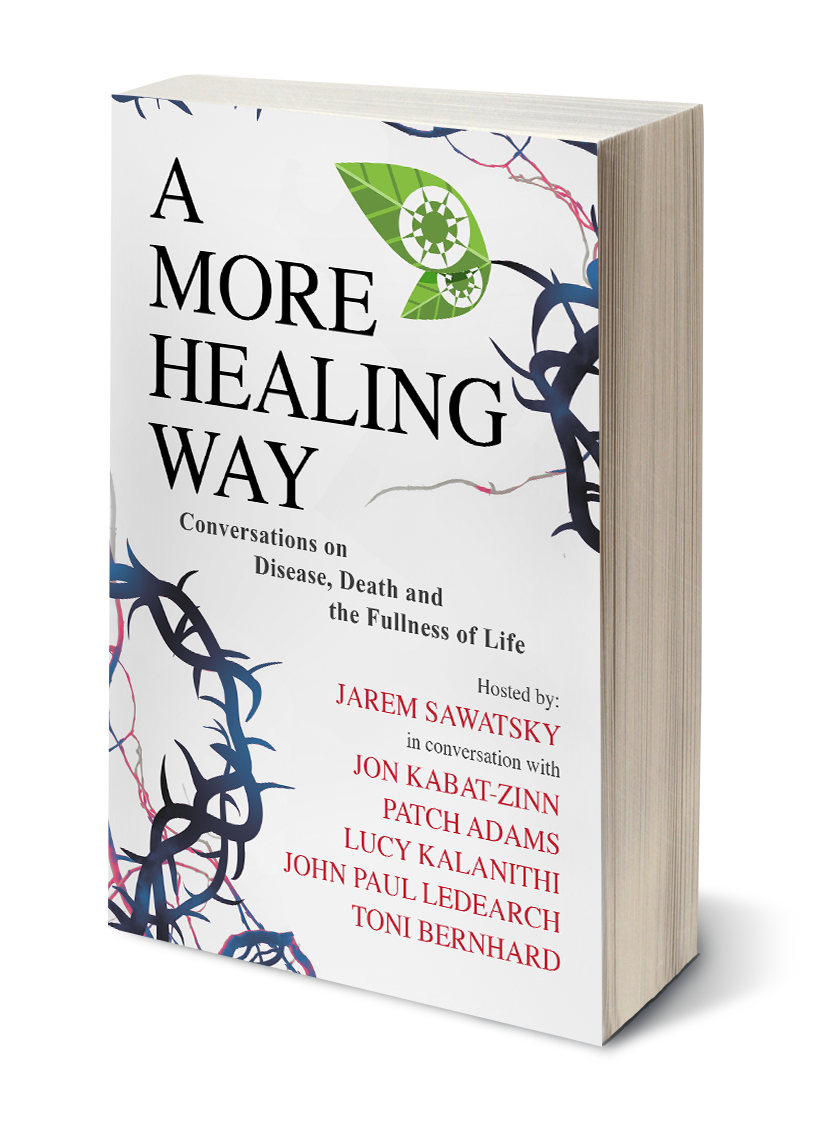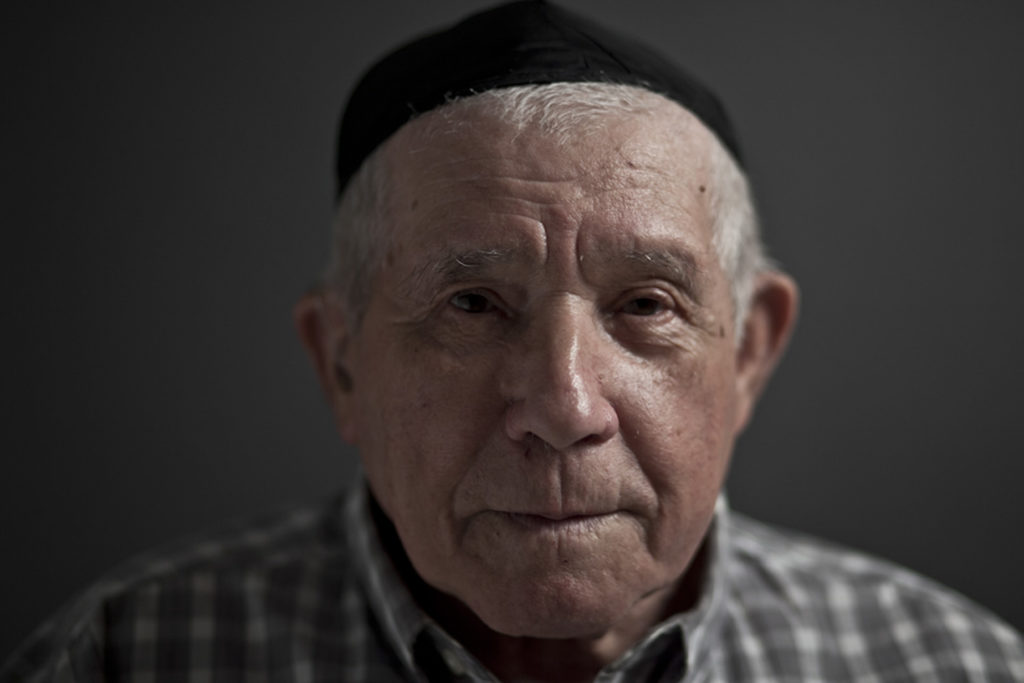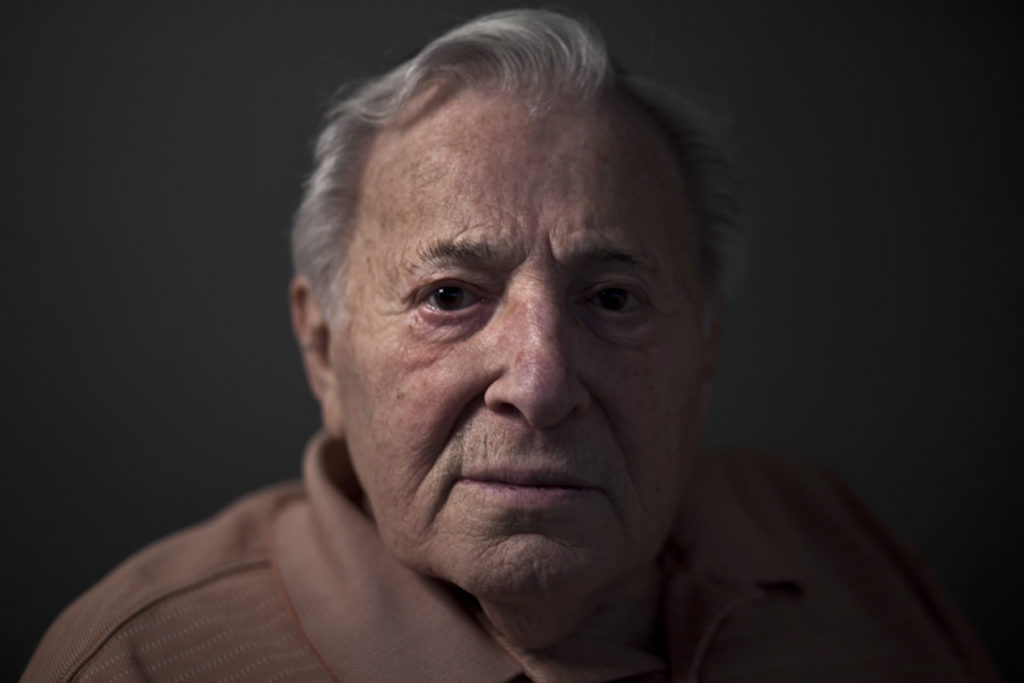
Where should I send the audio and video series?

Where should I send the audio and video series?
In this two-part series, I’ve identified 6 habits I’ve learned from Victor Frankl’s Man’s Search for Meaning, which I think can be helpful to those facing a critical illness. The first habit was covered in Part I which you can read here.
Katherine Noir a Auschwitz survivor at her home on the Upper West Side of New York. Katherine is now completely blind.
“A thought transfixed me: for the first time in my life I saw the truth as it is set into song by so many poets, proclaimed as the final wisdom by so many thinkers. The truth-that love is the ultimate and the highest goal to which a man can aspire.
Then I grasped the meaning of the greatest secret that human poetry and human thought and belief have to impart: The salvation of human is through love and in love.
I understood how a man who has nothing left in this world still may know bliss, be it only for the brief moment, in the contemplation of his beloved. In a position of utter desolation, when a man cannot express himself in positive action, when his only achievement may consist in enduring his sufferings in the right way-an honorable way-in such a position man can, through loving contemplation of the image he carries of his beloved, achieve fulfillment.”
The more one forgets himself–by giving himself to a cause to serve or another person to love–the more human he is and the more he actualizes himself.
When all else is stripped away, love remains. If remembering a beloved can bring out humanity in a concentration camp, then surely this might also work for those of us in less harsh circumstances. We need to become beholders of love.
When I went on long-term disability due to my progressive disease, a member of our family support circle prescribed that our family get a dog. My kids loved this prescription. So two years ago we got a puppy which we have all been learning to love. The dog is joy and love and – most of the love – calls out this love and joy in each one of our family. As we step beyond ourselves – what Frankl calls forgetting yourself – the more we are able to love and the more human we become. Consider getting a dog to learn about increasing love and joy.

Boris Shkolnik a holocaust survivor from Moldova at his home in the Bronx.
“As the inner life of the prisoner tended to become more intense, he also experienced the beauty of art and nature as never before. Under their influence, he sometimes even forgot his own frightful circumstances. If someone had seen our faces on the journey from Auschwitz to a Bavarian camp as we beheld the mountains of Salzburg with their summits glowing in the sunset, through the little-barred windows of the prison carriage, he would never have believed that those were the faces of men who had given up all hope of life and liberty. Despite that factor–or maybe because of it–we were carried away by nature’s beauty, which we had missed for so long.
This young woman knew that she would die in the next few days. But when I talked to her she was cheerful in spite of this knowledge. “I am grateful that fate has hit me so hard,” she told me. “In my former life I was spoiled and did not take spiritual accomplishments seriously.” Pointing through the window of the hut, she said, “This tree here is the only friend I have in my loneliness.” Through that window she could see just one branch of a chestnut tree, and on the branch were two blossoms. “I often talk to this tree,” she said to me. I was startled and didn’t quite know how to take her words. Was she delirious? Did she have occasional hallucinations? Anxiously I asked her if the tree replied. “Yes.” What did it say to her? She answered, “It said to me, ‘I am here — I am here — I am life, eternal life.'”
If the power of earth touches even those in concentration camps, we should explore the power of earth for ourselves. I have found that if touching the earth and being touched by the earth is not a part of my weekly practice that I lose myself. We need to practice touching the earth. Let your body touch the earth and listen to the heartbeat of creation. It will do wonders.
To discover that there was any semblance of art in a concentration camp must be a surprise enough for an outsider, but he may be even more astonished to hear that one could find a sense of humor there as well; of course, only the faint trace of one, and then only for a few seconds or minutes. Humor was another of the soul’s weapons in the fight for self-preservation
Humour is one of the ways we can face that which we fear. Rather than pulling away, this kind of humour leans into the fear and finds ways to loosen its grip on us. I know there are lots of ways we can do humour poorly, but in our home, humour has been vital. If anyone drops something or spills something on the floor we say “Huntington’s much?” Huntington’s is the disease I have and it makes me prone to dropping and spilling. Many of my blog posts have been about this kind of healing humour that we have learned on this path.

Irene XXXXX an Auschwitz survivor at home on Long Island. Irene and her twin brother René were experimented on by Dr Josef Mengele
“Those caught in dreaming about the life they used to have did very poorly, this very made their current life meaningless and pointless. They did not see the opportunities for living that were still in front of them.”
If you need to escape this life by dreaming about some other time when things were better, you will make this life meaningless, pointless and soon you will see your own existence as pointless. These kinds of dreams are dangerous for us.
Nothingbutness… the man that is nothing but a result of his environment (e.g. a prison camp) and his heredity (e.g. genetic makeup). Such a view of man makes a neurotic believer of what he is prone to believe anyway, namely, that he is the pawn and victim of outer influences or inner circumstances.
We can discover this meaning in life in three different ways: (1) by creating a work or doing a deed; (2) by experiencing something or encountering someone; and (3) by the attitude we take toward unavoidable suffering
In some ways, suffering ceases to be suffering the moment it finds a meaning, such as the meaning of a sacrifice.

Jack Ratz a holocaust survivor at his home in Brooklyn, New York.
Frankl’s approach is always to help people discover for themselves the meaning of their lives. He sees this striving for the meaning of our lives as the most basic human task. When we perceive life to be meaningless, life quickly becomes intolerable. However, when we are trying to live into the meaning of life, we can withstand a shocking amount of dehumanization – even a concentration camp. When in a concentration camp, finding meaning through work (point one above) is not an option. When facing unavoidable suffering (like concentration camps or chronic diseases) the key to a meaningful life needs to be found by the attitude we take toward unavoidable suffering (point three above).
I don’t see my disease as a curse from God. One of my friends in my church who has Parkinson’s Disease said she did not ask “why me?” but rather, “why not me?” I think this is on the same track. If our attitude toward our conditions is filled with bitterness and anger, they will not have the capacity to help to love or search for meaning. Each moment we need to responsibly decide what attitude we take toward unavoidable suffering. For me, the attitude of Dancing with Elephants has been helpful. It is not easy. I am not perfect at this. I often suck at it. But there is a kind of beauty, love, and meaning in this dance. So I will keep learning the dance, learning love, learning to laugh, learning to behold the earth. learning to live in the now and learning to search for meaning in the life I am living.
Note 1: If you missed Part I – you can read is here.
Thank you for putting your thoughts into words and sharing them with us, Jarem. You have given me much to consider.